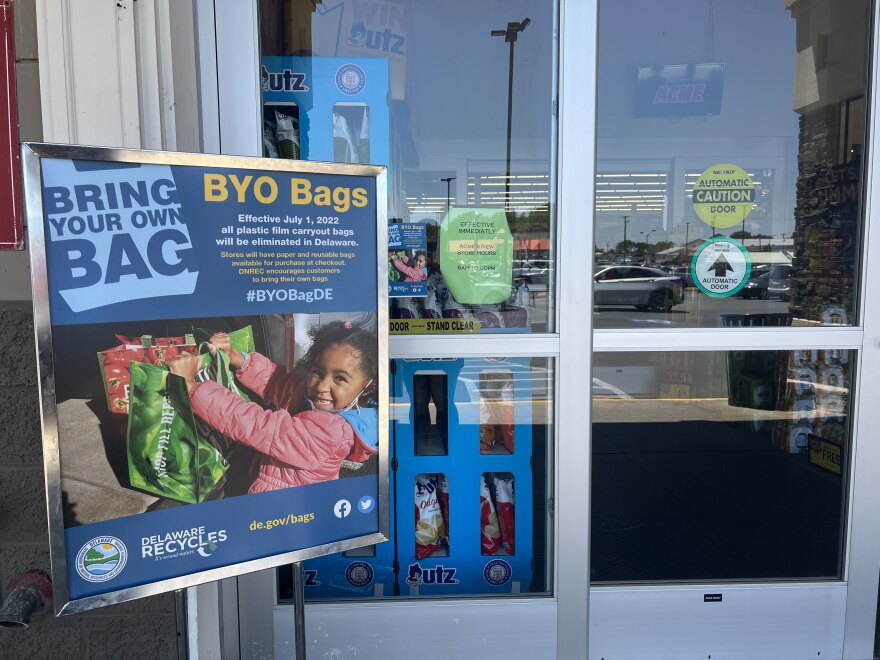A University of Delaware study confirms that plastic bag bans are working, but how effective are they?
Delaware is one of 12 states with a plastic bag ban, and some states and municipalities that don’t have one charge a fee to use them.
Researchers from UD and Columbia University examined how effective the bans and fees are in reducing litter particularly along the shoreline.
Kimberly Oremus is an associate professor in UD’s School of Marine Science and Policy. She says when it comes to the types of bans, one appears more effective.
"So, we did find that along the scale of the regulation - town, county or state - they all are fairly effective,” said Oremus. “The state had the most robust effects, and we think that's partially because of the geographic coverage of a statewide policy."
According to the study, full bans are more effective than partial bans, and in places with fees there was a bigger decline in litter but there aren’t a lot of places like that which skews the numbers a little.
"Any place that has a bag policy. So this is when you go to a grocery store, you check out and do they give you a plastic bag or not. If a place has a bag policy, we saw a large decline in plastic bag litter compared to places without these policies. So it's about a 25 to 47% reduction in plastic bag litter along these shorelines," said Oremus.
Oremus notes plastic bags have a long life cycle sticking around 20 to 100 years, and they can cause lots of problems to the ecosystem.
Being lightweight they can move around a lot in the water, and can look a lot like jellyfish - a favorite food of sea turtles. If ingested they can cause issues.




